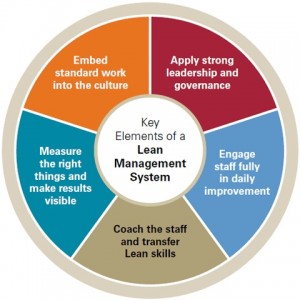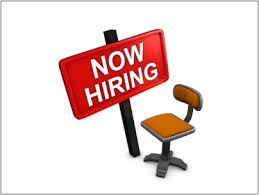 Making mistakes is everyone’s right. However, learning from one’s own mistakes and learning from others’ mistakes is essential. Like everyone else, managers also make a lot of mistakes so here is a list of the top 5 management mistakes that managers need to avoid…
Making mistakes is everyone’s right. However, learning from one’s own mistakes and learning from others’ mistakes is essential. Like everyone else, managers also make a lot of mistakes so here is a list of the top 5 management mistakes that managers need to avoid…
Category: Management and Leadership (Page 2 of 11)
This is an extract from an article with the same title in the Harvard Business Review authored by Adam Waytz and Malia Mason.
 Neuroscience which is the science of how the brain works has been around for a long time but it has taught us surprisingly little about how the mind works. The few things it has taught though have been articulated very well. This article is about those few things. These are the default, reward, affect, and control core neural networks. The role of these networks and their implications for people managers are now starting to be understood.
Neuroscience which is the science of how the brain works has been around for a long time but it has taught us surprisingly little about how the mind works. The few things it has taught though have been articulated very well. This article is about those few things. These are the default, reward, affect, and control core neural networks. The role of these networks and their implications for people managers are now starting to be understood.
 Lean management began as an effort at Toyota to reduce time for a manufacturing process and thus reduce in-process inventory. This became known as just-in-time inventory management. The result was less warehouse space, fewer forklifts, less workshop space, etc. Once the flow of work can be free of interruption and unnecessary repeat work, waste is eliminated. Lean is therefore the elimination of waste. But, more importantly, lean is continuous improvement in all work processes…
Lean management began as an effort at Toyota to reduce time for a manufacturing process and thus reduce in-process inventory. This became known as just-in-time inventory management. The result was less warehouse space, fewer forklifts, less workshop space, etc. Once the flow of work can be free of interruption and unnecessary repeat work, waste is eliminated. Lean is therefore the elimination of waste. But, more importantly, lean is continuous improvement in all work processes…
 From behavioral interviewing techniques to psychometric testing, managers have access to a range of tools to make the staff hiring process foolproof and reduce the possibility of the wrong hire. The reality is that no process can make the hiring completely foolproof. But it is possible to make the process almost foolproof by using a tried and tested approach to effective hiring…
From behavioral interviewing techniques to psychometric testing, managers have access to a range of tools to make the staff hiring process foolproof and reduce the possibility of the wrong hire. The reality is that no process can make the hiring completely foolproof. But it is possible to make the process almost foolproof by using a tried and tested approach to effective hiring…
The information in this article is based on published research carried out by Center for Creative Leadership (CCL)…
 The way the priority and the focus on leadership has changed is a function of how organizational and leadership thinking has evolved over the last 30 years or so. To illustrate the difference, we contrast across various situations what leadership used to be and what it means now:
The way the priority and the focus on leadership has changed is a function of how organizational and leadership thinking has evolved over the last 30 years or so. To illustrate the difference, we contrast across various situations what leadership used to be and what it means now:
Based on an extract from a Business Insider web article. The original article was written by Alison Griswold and Vivian Giang.
 Smart and successful entrepreneurs including the likes of Richard Branson of Virgin and Tony Hsieh of Zappos know that interview questions like “What’s your biggest strength?” and “What’s your biggest weakness?” don’t produce revealing answers. That’s why they steer clear of these cliché queries and instead ask more meaningful ones. Many executives have their one favorite go-to question that reveals everything they need to know about a job candidate. Here is a list of the top 10 questions…
Smart and successful entrepreneurs including the likes of Richard Branson of Virgin and Tony Hsieh of Zappos know that interview questions like “What’s your biggest strength?” and “What’s your biggest weakness?” don’t produce revealing answers. That’s why they steer clear of these cliché queries and instead ask more meaningful ones. Many executives have their one favorite go-to question that reveals everything they need to know about a job candidate. Here is a list of the top 10 questions…
 Read any book about organizational success – whether in a multinational or a small business – and the key to organizational success is related to something business-like: leadership, sales, customer care, profitability, etc. Any reference to recreation and fun is almost always as an add-on. For example, a company retreat with balloons and treasure hunts once a year or a sports day or a company lunch once a quarter. HR managers lecture line managers on the need to have such events so their fun-starved staff can get a chance to “loosen up”. Yet staff engagement remains low….
Read any book about organizational success – whether in a multinational or a small business – and the key to organizational success is related to something business-like: leadership, sales, customer care, profitability, etc. Any reference to recreation and fun is almost always as an add-on. For example, a company retreat with balloons and treasure hunts once a year or a sports day or a company lunch once a quarter. HR managers lecture line managers on the need to have such events so their fun-starved staff can get a chance to “loosen up”. Yet staff engagement remains low….

Recent Comments